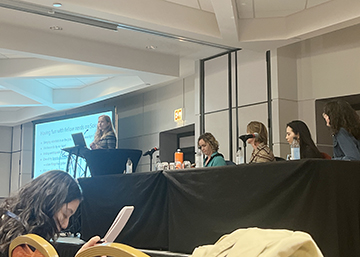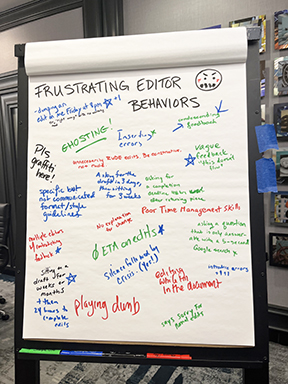Five science writers share tips on how to make science stories entertaining and funny
By Clara Lincolnhol
 This is the 6th in a series of articles by Knight Center students who attended the recent annual conference of the National Association of Science Writers.
This is the 6th in a series of articles by Knight Center students who attended the recent annual conference of the National Association of Science Writers.
“Welcome to how to engage an audience,” said Kathyrn Jepson, the editor-in-chief for Symmetry Magazine and a science fiction editor.
Jepson and four other journalists spoke at a panel at the National Science Writers Conference in Chicago to share how writers can implement humor in their writing to get readers hooked on a scientific story.
Blythe Terrell, the executive editor at Science Vs., said a critical way to tell a funny science story is by getting the scientist in on a joke.
 “One of the critical ways we do that is by giving scientists a space where they hopefully feel comfortable opening up and having just a little bit of fun,” Terrell said. “And that is often on our tape in our audio.”
“One of the critical ways we do that is by giving scientists a space where they hopefully feel comfortable opening up and having just a little bit of fun,” Terrell said. “And that is often on our tape in our audio.”
She said they will write weird questions and see if the scientist wants to go along with them.
“It’s not like we aren’t taking the topic seriously. We are treating it with seriousness. The rest of the episode is serious, but we find space for these things and we find that really engages listeners,” Terrell said.
Kate Gammon, a comedian, and freelance journalist, said she writes a lot about crises, like the biodiversity crisis, the climate crisis and political crisis. “It felt sometimes like I was writing an obituary for nature,” Gammon said. “So I had to make jokes.” Continue reading



